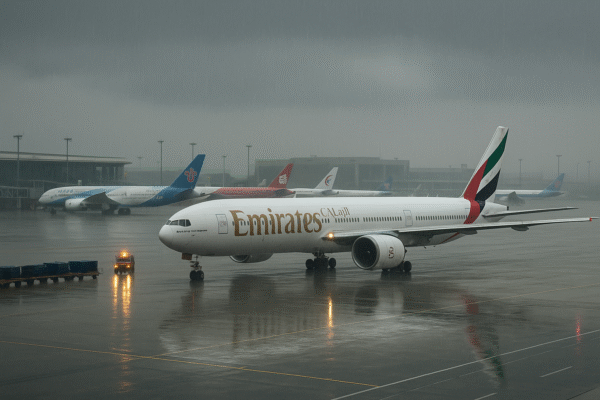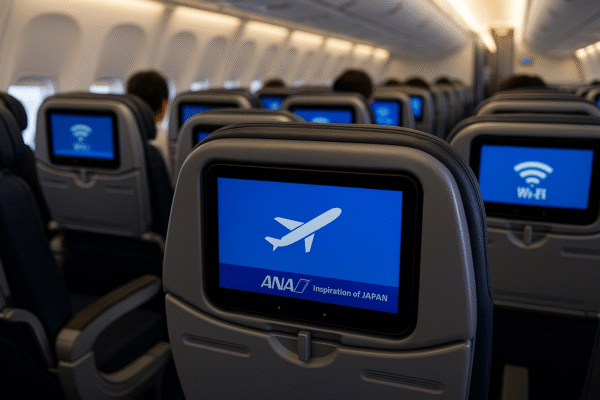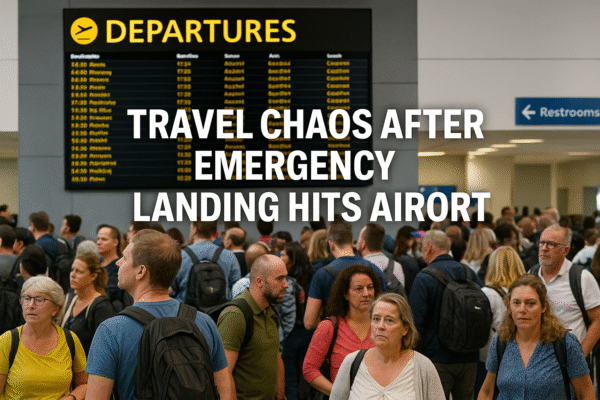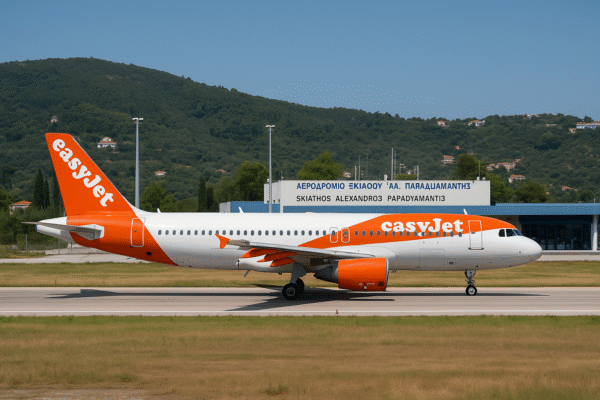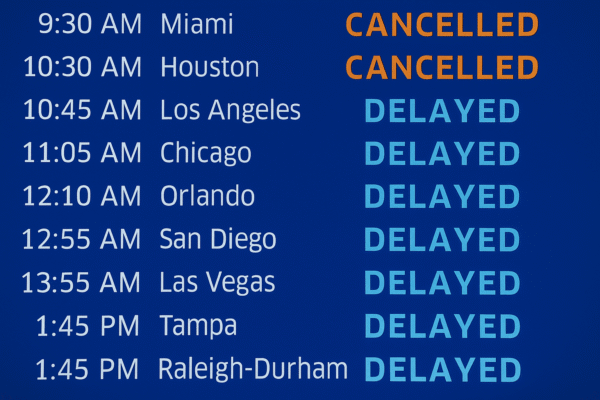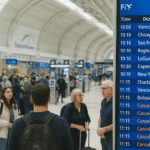A major IT system outage has thrown United Airlines operations into chaos this week, disrupting over 1,700 flights and causing nationwide travel turmoil across major U.S. airports. The failure of the airline’s decades-old “Unimatic” flight system on Wednesday resulted in cascading delays and cancellations that continued into Thursday, severely affecting passengers traveling through key hubs such as Chicago O’Hare, Denver International, Los Angeles, Houston, and Miami.
Breakdown of the Disruption: Over 1,700 Flights Impacted
The problems began Wednesday when United’s Unimatic system—critical to managing flight schedules, routing, and operations—suffered an unexpected failure. The fallout was immediate and widespread: 218 flights were cancelled and approximately 1,100 delayed that day alone. Though the system was restored by Wednesday evening, the backlog of displaced aircraft and out-of-position crew members created further chaos.
On Thursday, United reported 164 more cancellations and 489 delays, totaling over 650 additional disruptions. In total, more than 1,700 United flights were affected over the two-day period, impacting both domestic and international routes.
Major Routes Affected Across the United States
From coast to coast, passengers experienced hours-long waits and missed connections. Disrupted routes included:
- UAL146 Newark to London Heathrow
- UAL796 San Francisco to Boston
- UAL2276 Los Angeles to Chicago
- UAL1476 Denver to Kansas City
- UAL2074 Denver to Rapid City
Even short-haul domestic flights saw severe ripple effects due to unavailable aircraft and unqualified crews under federal duty hour regulations.
What Caused the Meltdown?
United Airlines traced the disruption to its “Unimatic” system—legacy software used for decades to manage crew scheduling, aircraft routing, flight timings, and safety data. Though not a cybersecurity breach, the system’s failure created a bottleneck that brought operations to a standstill.
Experts note that legacy systems like Unimatic are increasingly vulnerable due to their age and reliance on outdated technology, stressing the need for modernization in the aviation sector.
FAA Involvement and Government Oversight
To help manage the congestion, the Federal Aviation Administration (FAA) issued a temporary ground stop for United flights heading to Chicago O’Hare International Airport. This move was intended to prevent airport overcrowding and mitigate cascading disruptions throughout the U.S. airspace.
The U.S. Department of Transportation (DOT) and other agencies are closely monitoring United’s response and are expected to launch reviews to ensure accountability and prevent similar incidents in the future.
United Airlines Responds to Passenger Fallout
United Airlines has issued public apologies, reaffirming their commitment to passenger safety and pledging to improve infrastructure.
“We sincerely apologize for the inconvenience caused by the system outage. Our team is working around the clock to rebook passengers, issue reimbursements, and return to full operations,” stated a United Airlines spokesperson.
Affected travelers are being offered compensation in accordance with United’s delay and cancellation policy, including meal vouchers, hotel accommodations, and full refunds where applicable.
Tips for Affected Travelers
Passengers impacted by this disruption should take the following steps:
- Monitor flight status using United’s mobile app or website
- Sign up for SMS/email alerts
- Contact customer service for rebooking assistance
- Check credit card or travel insurance benefits for trip delay compensation
Additionally, travelers should be aware of their rights under the U.S. Department of Transportation guidelines, which include provisions for refunds and compensation depending on the circumstances of the delay or cancellation.
Long-Term Implications for United Airlines
This incident raises significant concerns about the resilience of airline IT infrastructure. United’s reliance on outdated technology has exposed a major vulnerability that could impact future customer confidence.
As travel volume increases during the 2025 summer season, experts warn that other carriers may face similar disruptions if proactive upgrades to legacy systems are not implemented across the industry.
Conclusion: A Wake-Up Call for the Aviation Industry
United Airlines’ IT system failure has caused one of the largest travel disruptions of 2025 so far. With over 1,700 flights impacted, the incident underscores the urgent need for digital modernization and strategic contingency planning in the airline sector.
Passengers traveling this week are advised to remain flexible, stay informed through official airline channels, and plan for potential delays as the airline continues recovery efforts.
For more travel news like this, keep reading Global Travel Wire




